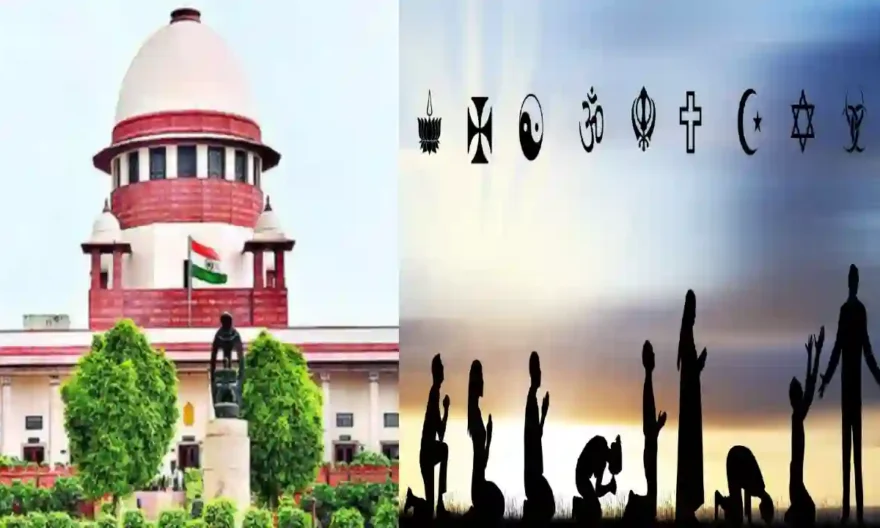
The Supreme Court on Monday said that it will hear pleas dealing with two separate issues of alleged fraudulent conversions and challenge to various state laws on religious conversions due to interfaith marriages on 17 March.
A bench headed by CJI DY Chandrachud, was urged by Advocate Ashwini Upadhyay, who filed a PIL in his personal capacity, that his plea against fraudulent religious conversions was distinct from the batch of petitions challenging the validity of various state laws on religious conversions.
“I am neither supporting the state laws nor opposing them. My petition deals with separate issue of fraudulent religious conversions,” the lawyer stated.
The advocate sought hearing on his PIL separately.
In this regard, the CJI said, “All the petitions are before us on March 17, 2023, for the time being, ruled out the possibility of a separate hearing on the PIL.”
The PIL seeks question to the Centre and states to take tough measures to control fraudulent religious conversions.
Several petitions, including one filed by Jamiat Ulama-e-Hind, were filed challenging the legality of various state anti-conversion laws.
The Muslim organisation also wants the Supreme Court to hear 21 cases in which state laws governing religious conversions as a result of interfaith marriages have been challenged.
The Supreme Court on February 3 requested responses from the Centre and six states on a petition filed by the Muslim body seeking the transfer of 21 cases challenging state laws governing religious conversions.
The Muslim body has requested that three petitions pending in the Gujarat High Court, five in the Allahabad High Court, three in the Himachal Pradesh High Court, three in the Jharkhand High Court, six in the Madhya Pradesh High Court, and one in the Karnataka High Court be transferred.
In addition, Gujarat and Madhya Pradesh have filed separate petitions challenging the interim orders of the respective high courts that stayed certain provisions of the state laws on conversion.




